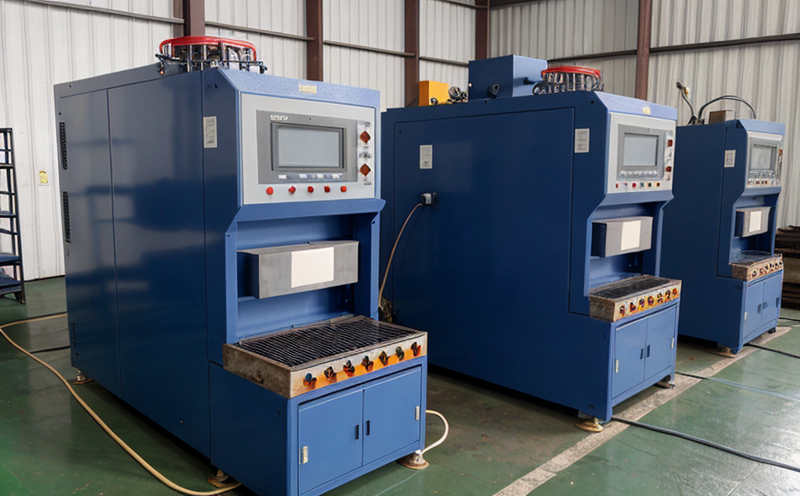ISO 2590 Iron Ore Sulfur Content Testing
The ISO 2590 method is a robust and internationally recognized standard designed to determine the sulfur content in iron ores. This testing procedure ensures that manufacturers can meet stringent quality control requirements, which are critical for both environmental compliance and product performance.
Iron ore is one of the most important raw materials used in steel production. Sulfur contamination in iron ore can have significant impacts on downstream processes such as smelting, casting, and final product properties. High sulfur levels can lead to increased slag formation during the reduction process, which reduces the yield efficiency and increases energy consumption. Additionally, high sulfur content is associated with lower quality steels, affecting mechanical properties like strength and ductility.
The ISO 2590 method uses a gravimetric approach for sulfur determination in iron ores. The procedure involves the combustion of a sample to convert all the sulfur into sulfur dioxide (SO₂), followed by absorption of this gas using a solution containing potassium iodate and hydrochloric acid. After combustion, the precipitated sulfur is weighed as potassium hydrogen tartrate (KHT). The weight of KHT is directly proportional to the amount of sulfur present in the sample.
The testing process requires precise sample preparation to ensure accurate results. Typically, a known quantity of iron ore powder or pellet is taken and homogenized for uniformity before undergoing combustion analysis. Proper sample conditioning ensures that all sulfur compounds are effectively converted into SO₂ during the combustion step. This method highlights the importance of experienced personnel in conducting these tests accurately.
Understanding the significance of ISO 2590 testing is crucial for industries reliant on iron ore as a key component in steel production and other metal processing applications. By adhering to this standard, manufacturers can maintain consistent product quality while also complying with international regulations aimed at reducing environmental impacts associated with sulfur emissions.
Implementing ISO 2590 testing helps industrial facilities stay competitive by ensuring they meet the highest industry standards for raw material specification. This not only enhances operational efficiency but also supports long-term sustainability goals through better resource management and reduced waste generation.
Benefits
- Achieving Compliance: Ensures adherence to international standards, thereby avoiding potential legal issues and penalties.
- Enhanced Product Quality: Identifies sulfur contamination early on in the production process, allowing for corrective actions.
- Cost Savings: By minimizing waste and optimizing resource usage, companies can reduce operational costs significantly.
- Better Decision-Making: Provides reliable data that informs strategic decisions regarding supplier selection and process optimization.
Industry Applications
The ISO 2590 iron ore sulfur content testing is particularly beneficial for various sectors within industrial manufacturing and processing, including steel production plants, mining operations, and metalworking facilities. These industries rely heavily on iron ores as crucial inputs into their processes.
In the steel industry, accurate measurement of sulfur levels helps optimize furnace conditions and predict alloy behavior during melting. In mining and extraction, this test ensures that only compliant materials are processed further up the supply chain, thus enhancing overall quality control measures across all stages of production.
For R&D teams working on new steel alloys or advanced metallurgy projects, knowing precise sulfur content levels is essential for developing innovative solutions while maintaining regulatory compliance. Procurement departments benefit from this service as it allows them to source high-quality raw materials consistently, contributing positively towards corporate social responsibility initiatives.
Eurolab Advantages
EuroLab stands out as a leading provider of ISO 2590 iron ore sulfur content testing services. Our team comprises highly skilled experts who possess extensive experience in conducting these tests according to international standards.
We utilize state-of-the-art equipment and facilities that guarantee accurate results every time. With our comprehensive understanding of the industry, we offer personalized solutions tailored to meet each client's unique needs. Whether you're a large corporation or small business, EuroLab is committed to delivering high-quality service backed by years of expertise.
Our commitment extends beyond just providing laboratory services; it also includes ensuring seamless communication throughout the testing process. From initial consultation through final report generation, our goal is to support your organization's goals in achieving superior raw material specifications and maintaining strict compliance with regulatory requirements.





